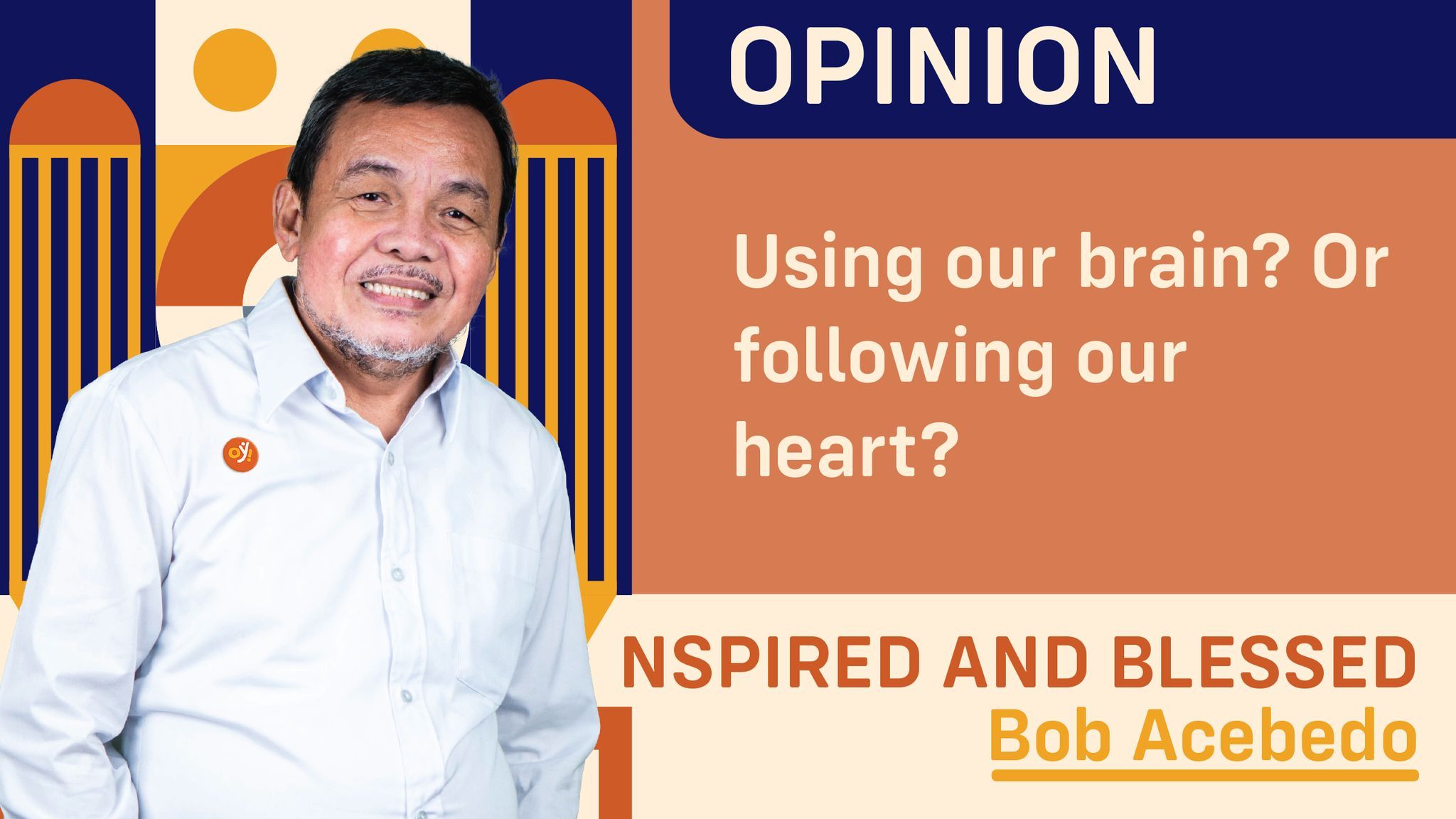Pray thee, which one is the better path: Using our brain? Or, following our heart?
Back in my seminary days, I would admittedly recall that I tended more to the side of the “rational” than the “emotional” as we were taught of the faculties of the human soul – the intellect and (free) will. The dichotomy of the heart and brain was quite discernible then, that the brain would typically refer to the intellect, reason, and thought, whereas the heart to desires, feelings and emotions.
The brain is supposedly the artisan of wisdom, logic or reason, and is therefore far superior to the heart – which is rather perceived as unstable in terms of feelings or emotions. Truth to tell, this norm prevailed during my growing up years. That’s why, back then, young ladies – and young men as well – were sternly advised to weigh in with their brain and not so with their heart in deciding for marriage.
But when I decided – following the promptings of my heart – to get married too soon with my erstwhile college student after getting out of the seminary, I have since realized that the heart is far more superior to the brain or the mind.
Aristotle of ancient Greece taught that the heart is the “principle of life, of perception, of the motor processes, the animal heat, the nourishment and the growth” in humans. Aristotle considered the heart as the center of reason, thought, and emotion, senior to the brain in importance.
The ninth century Arab philosopher Abu Nasser Al-Farabi posited that “the ruling organ in the human body is the heart; the brain is a secondary ruling organ subordinated to the heart.”
Auguste Comte, also a 9th century philosopher, declared that “the brain should be servant to the heart.”
Similarly, in Vedanta (Hindu philosophy based on the teachings of the Upanishads), it is said that “the mind makes a good servant but a poor master.”
Also, Blaise Pascal (French physicist, philosopher, and theologian) once said: “The heart itself has its own reason, which reason itself cannot understand.”
Then, coming to our contemporary age, in 1991 scientists have discovered the existence of some forty thousand specialized cells in the human heart that function similarly as the brain. These intelligent cells in the heart were called “sensory neurites” and considered as the “little brain in the heart.” Scientists further found that these “brain cells in the heart” emit a signature electrical frequency of 100 times stronger and a magnetic frequency of 5,000 times stronger than the brain. This means that the heart can think, remember, make decisions, feel, and sense independently of the brain.
This scientific finding thus prompted Gregg Braden, New York Times’ bestselling author known for bridging science and spirituality, to postulate: “Our brain receives many of its instructions on what to do from the heart, as studies show that the heart is able to think, feel, and have emotions on its own.”
Again, finally, ask thee: Our brain? Or, our heart?
For the life of me, especially in aiming for success or manifesting my deepest aspirations, I opt for the HEART – because it is simply where HAPPINESS truly resides.
#InspiredAndBlessed #BobAcebedo #UsingOurBrain #FollowingOurHeart #Aristotle #AbuNasserAlFarabi #AugusteComte #Vedanta #BlaisePascal #GreggBraden #OpinYonColumn #OpinYon #WeTakeAStand
